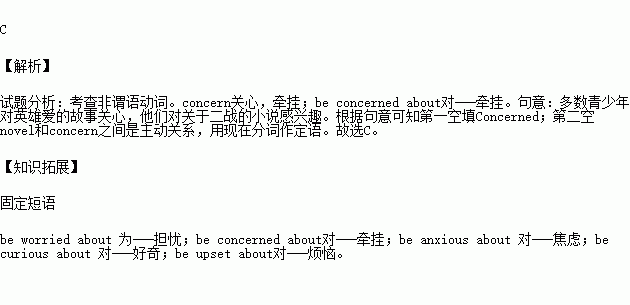题目内容
_______about the hero’s love story, most teenagers are interested in the novel _______the Second World War.
A. Concerned, concerned B. Concerning, concerning
C. Concerned, concerning D. Concerning, concerned
练习册系列答案
 同步轻松练习系列答案
同步轻松练习系列答案 课课通课程标准思维方法与能力训练系列答案
课课通课程标准思维方法与能力训练系列答案
相关题目


 ed in the paragraph that follows?
ed in the paragraph that follows?